Cool Facts: Equine Winter Weather Adaptations
January 6, 2025 Comments Off on Cool Facts: Equine Winter Weather Adaptations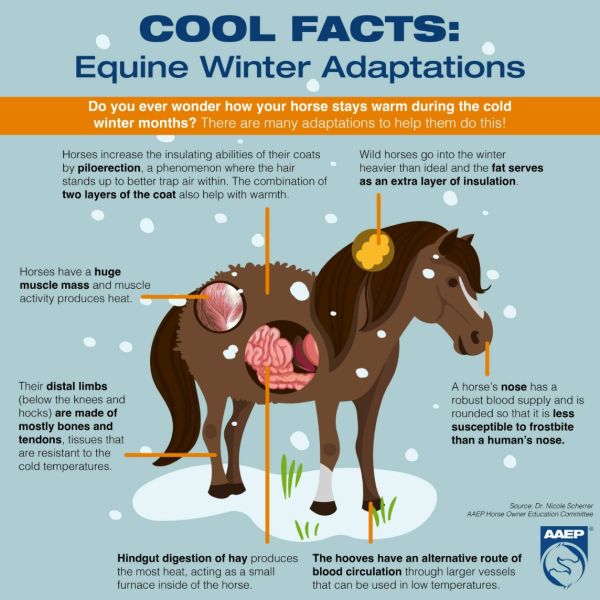
From the AAEP Horse Owner Education Committee: Are you familiar with the many adaptations that help your horse stay warm during the cold winter months? ♦ Hindgut digestion of hay produces the most heat, acting as a small furnace inside of the horse. This is why free choice; good quality hay is so important in the […]
Continue reading …Low-NSC Diets: Not for Every Horse
December 21, 2024 Comments Off on Low-NSC Diets: Not for Every Horse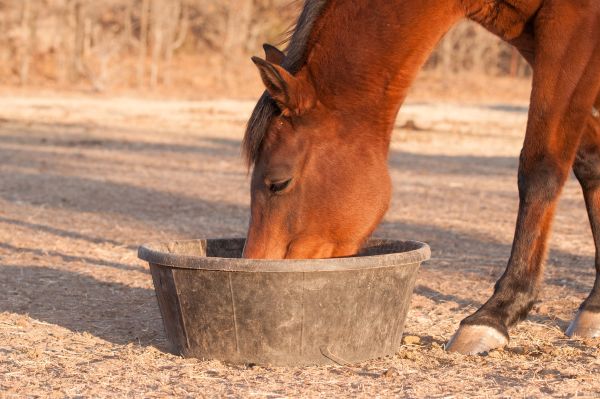
From Kentucky Equine Research: When it comes to feeding horses, carbohydrates get a lot of attention. After all, they are the main energy source used by horses to fuel countless body processes. A “carbohydrate” is a general term that includes simple sugars (one or two molecule sugars such as glucose and sucrose) and polysaccharides (long […]
Continue reading …Zoetis Reminds Horse Owners of the Importance of Booster Vaccination for Pregnant Broodmares in the Third Trimester
December 17, 2024 Comments Off on Zoetis Reminds Horse Owners of the Importance of Booster Vaccination for Pregnant Broodmares in the Third Trimester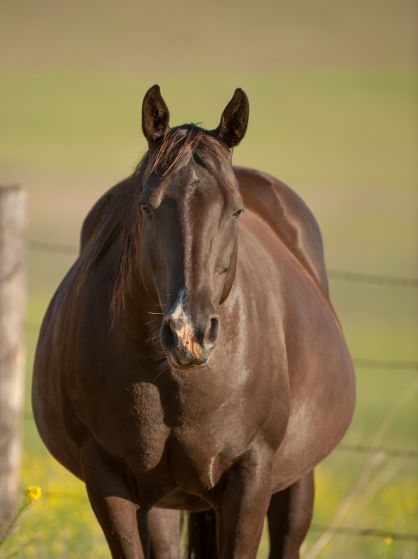
Zoetis’ Core EQ Innovator® is the first and only vaccine shown to be safe for use as a booster against all core equine diseases, including rabies, 4 to 6 weeks prior to foaling. PARSIPPANY, N.J. (Dec. 11, 2024)—Zoetis Inc., the world’s leading animal health company, is reminding horse owners of the importance of vaccinating broodmares during […]
Continue reading …AAEP Bestows Distinguished Educator Award for Mentorship Upon Dr. Tom Riddle
December 16, 2024 Comments Off on AAEP Bestows Distinguished Educator Award for Mentorship Upon Dr. Tom Riddle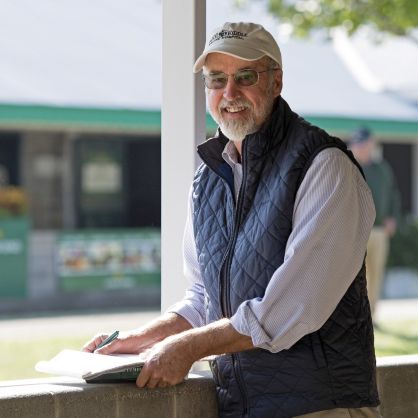
From AAEP: Tom Riddle, DVM, renowned authority on equine reproduction and the retired co-founder of Rood & Riddle Equine Hospital in Lexington, Ky., received the 2024 Distinguished Educator – Mentor Award from the American Association of Equine Practitioners (AAEP). The Distinguished Educator – Mentor Award honors an individual who by her or his actions and […]
Continue reading …What Do You Really Know About Strangles?
December 10, 2024 Comments Off on What Do You Really Know About Strangles?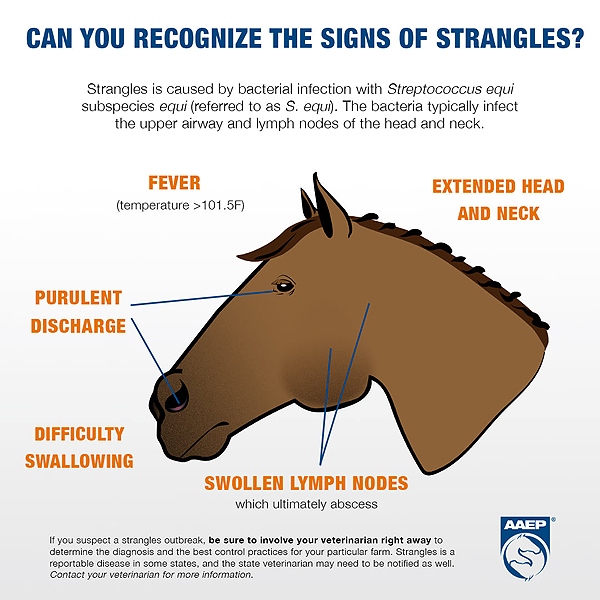
Though strangles is often thought to be a young horses’ disease, and they are particularly suspectible, the disease is more commonly identified in horses ranging in ages from 6 to 10 years of age. It is, however, one of the most commonly contagious diseases of the horse (worldwide), according to the American Association of Equine Practitioners. AAEP has […]
Continue reading …Enhancing the Horse-Rider Connection Through Corrective Exercise
December 4, 2024 Comments Off on Enhancing the Horse-Rider Connection Through Corrective Exercise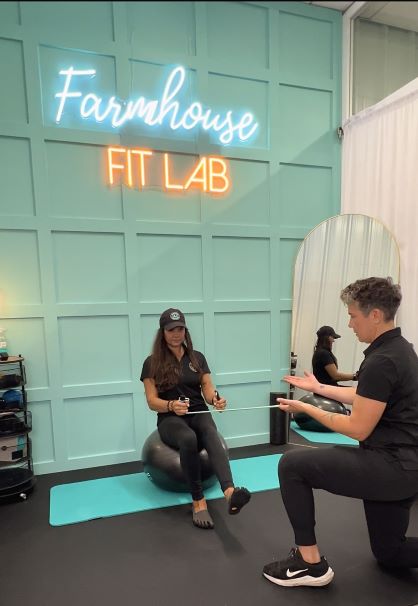
From Farmhouse Chiropractic: In the world of equestrian sports, the relationship between horse and rider is foundational. An effective partnership hinges on mutual understanding and physical balance, both of which can be significantly enhanced through corrective exercise. At Farmhouse Chiropractic, we are excited to announce the launch of our **Farmhouse Fit Lab**, designed to help […]
Continue reading …Could Flatter Saddles Improve Welfare in Ridden Horses?
December 1, 2024 Comments Off on Could Flatter Saddles Improve Welfare in Ridden Horses?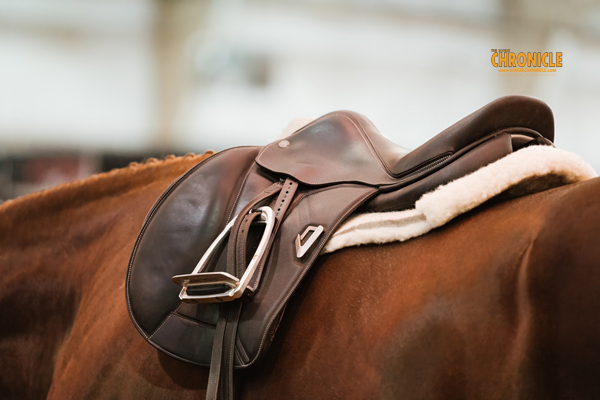
From Equine Science Update: A new study has indicated that flatter-shaped saddles may be more suitable for horses that spend most of their ridden time in motion. The research, which observed significant changes in the shape of horses’ backs while stationary and during movement, found that horse backs become considerably flatter during motion compared to […]
Continue reading …Equine Juvenile Spinocerebellar Ataxia
November 30, 2024 Comments Off on Equine Juvenile Spinocerebellar Ataxia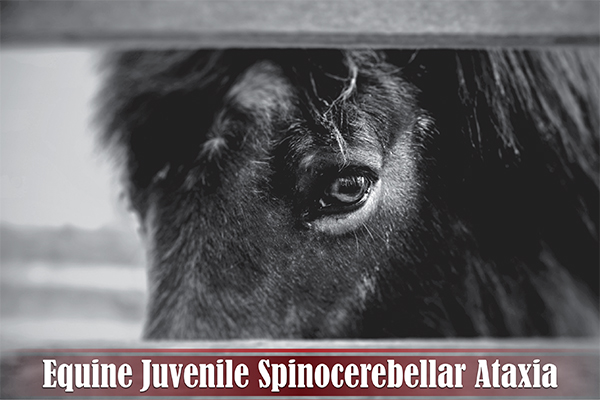
In a world where countless foals are born each year and thou-sands are registered with the American Quarter Horse As-sociation, the largest equine breed registry in the world, genetic diseases are a sig-nificant concern for breeders and owners alike. However, when a disease has affected at least 12 foals in the past four years, it’s understood that this is an inherited condition that can and should be prevented. Addressing this rare disease is crucial to safeguarding future generations of horses.
Continue reading …Slow-Feeding Devices: Stresses in Horses Studied
November 29, 2024 Comments Off on Slow-Feeding Devices: Stresses in Horses Studied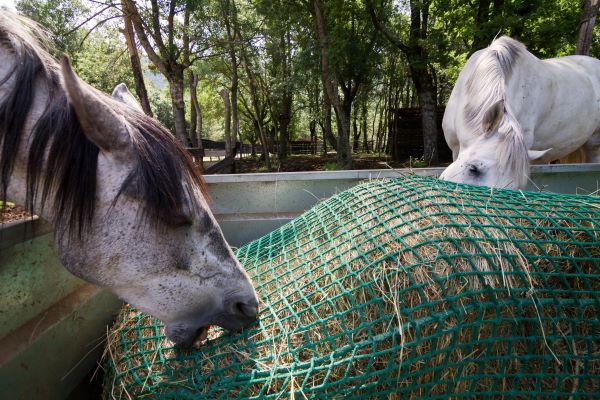
From Kentucky Equine Research: Despite the benefits of slow-feeding devices (SFDs), some ponies and horses may show signs of frustration when using these tools. Because SFDs are meant to improve animal welfare, primarily by extending feeding time, selecting an appropriate one that minimizes frustration is recommended. SFDs include haynets, hay balls, and even a newer device called […]
Continue reading …Equine Stretching: The Key to Enhanced Performance and Well-Being
November 2, 2024 Comments Off on Equine Stretching: The Key to Enhanced Performance and Well-Being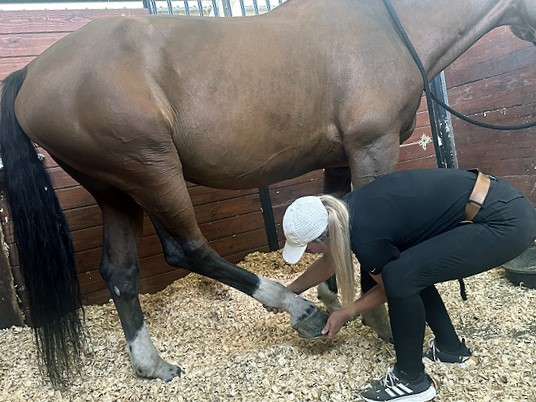
By Dr. Jillian Johnson, DC, AVCA, Farmhouse Chiropractic Equine stretching is an often-overlooked aspect of horse care that plays a vital role in maintaining the health and performance of your equine partner. As riders, understanding the benefits of stretching can not only help accelerate recovery after exercise but also decrease pain, minimize the risk of injury, […]
Continue reading …







